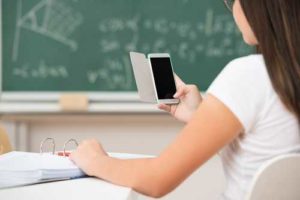Key points:
- Educators are worried about AI tools enabling plagiarism and cheating
- Banning ChatGPT prevents students and educators from using AI in new ways
With the rising popularity of ChatGPT, many educators and administrators have trepidation toward the new technology, seeing it as a threat both to students and schools. Many teachers and educational institutions have even gone as far as to ban ChatGPT due to concerns of cheating and academic integrity. But the reality is that AI is here to stay, and its abilities will only increase with time. Rather than banning the tool, it’s important that educators work to understand and embrace this new technology for all it has to offer.
While there are legitimate concerns about ChatGPT and cheating, let’s not forget that educators had similar worries about the use of the internet in classrooms just 20 years ago. And now, doing a Google search is just a basic tool for students to put together an essay. Still, many are quick to point out that AI’s capabilities are different and, in many ways, that is true. …Read More

